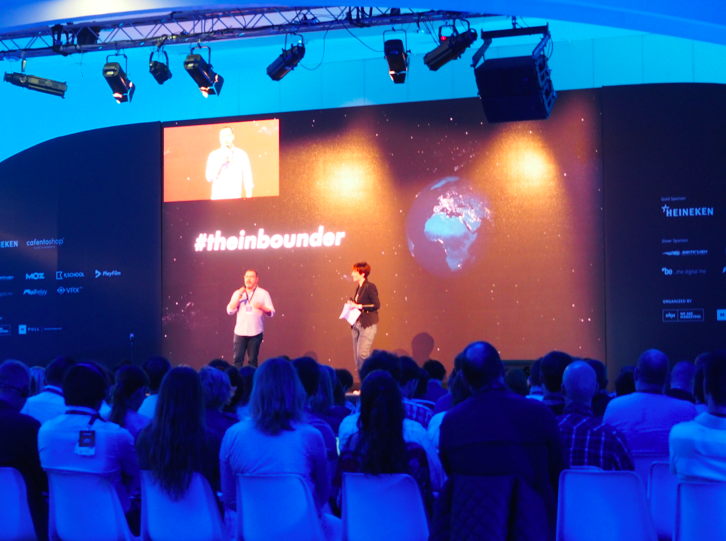The magnificent City of Arts and Sciences in Valencia played host once more to The Inbounder conference. There is a truly A-list line-up for both days. Here’s what you need to know from day one…
Key Theme One: Put your audience first
A common theme emerging from the first day of The Inbounder conference was reiterating the need to put the web user or customer at the heart of everything. Once again, step away from the brand, people! Sounds simple, right? Alas, many organisations fail at this basic step.
This onus on the audience came from both the search and marketing folks, and this is welcome news that requires cultural rethinking in many organisations. Customer first.
Your SEO strategy should focus on happy users
First up was Marcus Tandler from German SEO firm OnPage.org, who emphasised that Google wants happy users. Tandler reminded attendees that speed is now a key ranking factor across different browsers and platforms, as is dwell time. We’re now looking for the ‘long click’, but how do we achieve that? Tandler recommends:
- Satisfy users’ needs
- Speed, speed, speed – users don’t wait any more
- Great UX on all browsers/devices
- No broken links/pages
- No distractions, like pop-ups (AMEN TO THIS!)
He then challenged the audience to think about the quality of their own content.
“If your content would disappear from the web, would anyone miss it?”
Good question. Run a content audit, nurture the content that drives traffic and converts, and kill off those that don’t.
Key Theme Two: Snackable content and clean design are core to conversion
Tandler emphasised the need for video content, bullet points and clear fonts in an age when web users skim-read and hone into what they really want to read.
This point was reinforced by Valentina Falcinelli, founder of content marketing firm Pennamontata. Valentina recommended simplicity as vital in persuasive user experience. That means cutting out the extras without losing the message.
Organisations need to focus on authenticity: stock images don’t work; users can spot them a mile off (disclaimer: I use some imagery from Unsplash and Pixabay, guilty!). Falcinelli said images should add context to a story, good common sense stuff.
There’s nothing wrong with using shorter sentences, bullets or using bigger fonts (even sizes 16-22) to make reading easier. This is what users want. There is, after all, an art to writing for the web. [Continues…]
Key Theme Three: Understand context and intent
Will Critchlow from Distilled underlined the growing role of context and personalisation in search. Google could know what you’re going to search for in the coming weeks before you do, based on your search history.
Critchlow said we need to think beyond keywords and look at intent, especially with the rise in voice search. The next generation of searchers will not use text-like speak – they’ll speak normally into voice search. Photo recognition-based queries will also become available in the future.
Wil Reynolds, who demonstrated the value of understanding users’ questions, built upon this theme. If education results come up in SERPs, focus on educating your audience over trying to sell. Likewise, if news surfaces look at working with your PR team to get in that news, and also alter your site links according to common search.
I loved the part when Wil laid into companies that use confusing corporate speak, echoing my view that being a useful brand means speaking the language of our audiences. Marketers need to stop selling and start educating, that’s what organic search results demonstrate, Wil showed. A view echoed by following speaker Bas Van Den Beld.
Look at Answerthepublic.com for more on understanding comparable search queries.
Earlier in the day, Feliz Muñoz’s speech on the challenges brands experience transforming their businesses for me underlines the need for on-going digital marketing training in Spain and elsewhere.
Conclusion
Overall, the day reiterated what we all need to do as marketers in terms of counselling our own clients and following best practice ourselves when marketing online.
Tomorrow, I’m looking forward to web psychologist Nathalie Nahai, who I saw speak at BrightonSEO last month and she will provide some incredibly valuable insights. Also up are Lisa Myers and Rand Fishkin.
Kudos to Gianluca Fiorelli and the organising team. Great gig. Can’t wait for day two…


